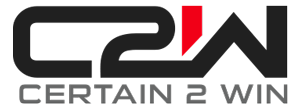To build a business, function as a leader, work on a winning team, or in any way interact with others toward mutual success requires that we undertake one of the most arduous and uncomfortable tasks known to mankind: a constant evaluation of our personal perspective or the way we “see the world”. History is rife with counsel regarding self-examination and awareness. Lamentations records, “Let us examine and probe our ways”. 1st Corinthians states, “But a man must examine himself.” Colonel John Boyd said within his OODA loop, Observation (in the context of evaluating one’s perceptions) is the key to winning in any arena of competition. Recently, Navy SEALS Babin and Willinck warned that “ego clouds and disrupts everything”. The truth of these warnings and exhortations are collectively recognized throughout the civilized world and are probably supported even in the uncivilized world. The hard work begins when after having accepted that truth, we manifest the courage and develop the skills to not just look into our personal mirrors but honesty ask our mirrors to reveal the unvarnished truth about ourselves be it positive or negative. M. Scott Peck, author of “The Road Less Traveled”, wrote that some people “will do most anything to avoid the particular pain that comes from self-examination” and that the light of scrutiny penetrates deception. In light of that (pun intended) who in their right mind would add “constant self-evaluation” to a work wagon already loaded so heavily the springs are flat? The answer is “the exceptional”. That’s who honestly asks for light to shine in their places of darkness and denial and sets about putting their beam on balance.
Recently my wife jarred me from a deep sleep with three words that powerfully readjusted my body chemistry from idle to foot-on-the-floor: “I SMELL SMOKE”. She didn’t say it in all caps, and neither did she say it as if she was terrified. She didn’t have to. As soon as I was semiconscious “I SMELLED SMOKE!”! Like my firefighting grandfather before me, I swiveled my feet to the floor, slung my robe over my shoulders, and like real men everywhere instantly had a flashlight in my hands. Of course, it had to be a fancy, “tactical” flashlight because that’s just what we must have these days, right? For about the next 60 seconds my perception was our house was on fire. The smell of smoke was extremely strong. Something was burning, and it had the undeniable smell of old wood burning, old wood like the framing of a house built decades ago. As we searched first upstairs then downstairs we could smell smoke, but we couldn’t see smoke. My vigilant wife soon spotted flames flickering from our next door neighbor’s patio, and inspired by the late, Pappy Hale, Captain, Big Spring Fire Department, I grabbed a step ladder and hose and went to work knocking down the flames on an old, dried tree stump cut down a decade ago. A cigar ash had lit it like a Boy Scout bonfire. Hoping my neighbor wouldn’t burst from his patio door and lay down suppressing fire toward a robed intruder hunched over his fence, I got the fire under control about the time he emerged , grabbed another water hose, and by the time we shuffled back to bed he was still dousing the water logged stump. Our house had been on fire. I had been certain of it. The smell of smoke was just too strong for there to be any other explanation. As I prepared to evacuate with wife, daughter, dog, and Galaxy phone illuminated to dial 911, my perceptions were rational and prudent. And, most importantly, they were wrong except for the smell drafted from outside by a small, window air conditioning unit. Much like many of the perceptions that influence and motivate my responses to perceived crises and high stress situations I assuredly pointed myself to a wrong conclusion. In the context of a normal workday, everything I think is filtered through my preconceived notions about the way I think things to be rather than how they really are. Notions are nothing on which to base important decisions, and, unfortunately, times of crisis (whether perceived or real) are most often when our “true selves” are revealed. We may fool ourselves and to some measure fool others on our team, but when the chips are down and we smell smoke, we act according to the degree we have allowed ourselves to be influenced by our fears, biases, egos, and self-limited outlook. The good news is we aren’t slaves to our personal conditioning. As sentient beings we have the gift albeit burdensome of being able to examine our preconceived notions or ways of looking at the world, and see things as they truly are. Our honest questions to the mirror of our soul can yield honest answers to live authentic lives.
Originally published in Beaumont Business Journal, Heat And Humanity Column


